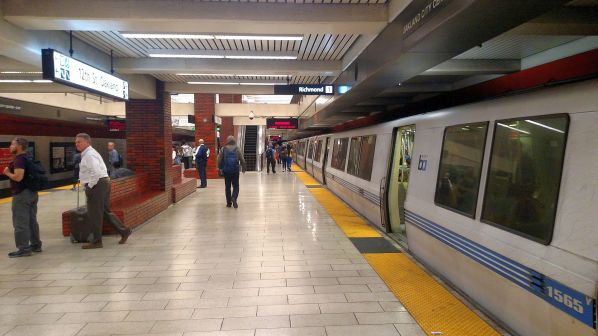Under the new contract, Parsons will provide design services for the implementation of CBTC, which will replace Bart’s original, early-1970s, track-circuit-based, operator-attended Automatic Train Control (ATC) system on 201km of line, while minimising the impact to revenue.
The new moving-block CBTC system, which will be supplied by Hitachi Rail STS through a contract signed in December 2019, will increase capacity, provide a state of good repair and result in a safer, more efficient transit system.
Parsons is one of two contracted engineering consultant selected to provide services including technical design, engineering, project management and implementation oversight for the project. Systra, with Canadian firm Hatch as a subcontractor, was awarded the second contract in August.
In addition, Bart has selected two construction management firms, Jacobs Engineering and CPM Associates, to provide general construction oversight.
Bart says that CBTC will increase capacity along the Transbay Tube tunnel linking San Francisco and Oakland to 30 trains per hour per direction in the core system area when fully implemented in 2032, from the current limit of 24 trains per hour per direction.
The upgrade is expected to take about 11 years to complete. The system will first be proven on a test track, then rolled out for Bart main line deployment in eight phases.
An earlier CBTC contract from the former General Electric Transportation Systems Global Signalling (GETS-GS), for a system known as Advanced Automatic Train Control (AATC), was cancelled in 1998 amid controversy.
Transbay Corridor Core Capacity Programme
The TCMP is part of Bart’s $US 3.5bn Transbay Corridor Core Capacity Programme (TCCCP), which will expand capacity throughout the entire Bart network.
The programme is a package of strategic investments that will increase train frequencies between San Francisco and Oakland by more than 30%, and overall capacity by more than 36%.
The programme includes four elements:
- the purchase of 306 additional coaches
- the implementation of CBTC
- a new vehicle storage yard at the Hayward maintenance facility, and
- the construction of six traction power substations in Richmond, Pleasant Hill, Oakland, and two in downtown San Francisco, and the Hayward maintenance facility.
The programme will be funded through a $US 1.17bn Full Funding Grant Agreement (FFGA) with the Federal Transit Administration (FTA) through its Capital Investment Grant (CIG) programme. awarded on September 14.
Bart is also undertaking a separate programme to replace and upgrade existing traction power systems to increase the amount of power available for train operation.

